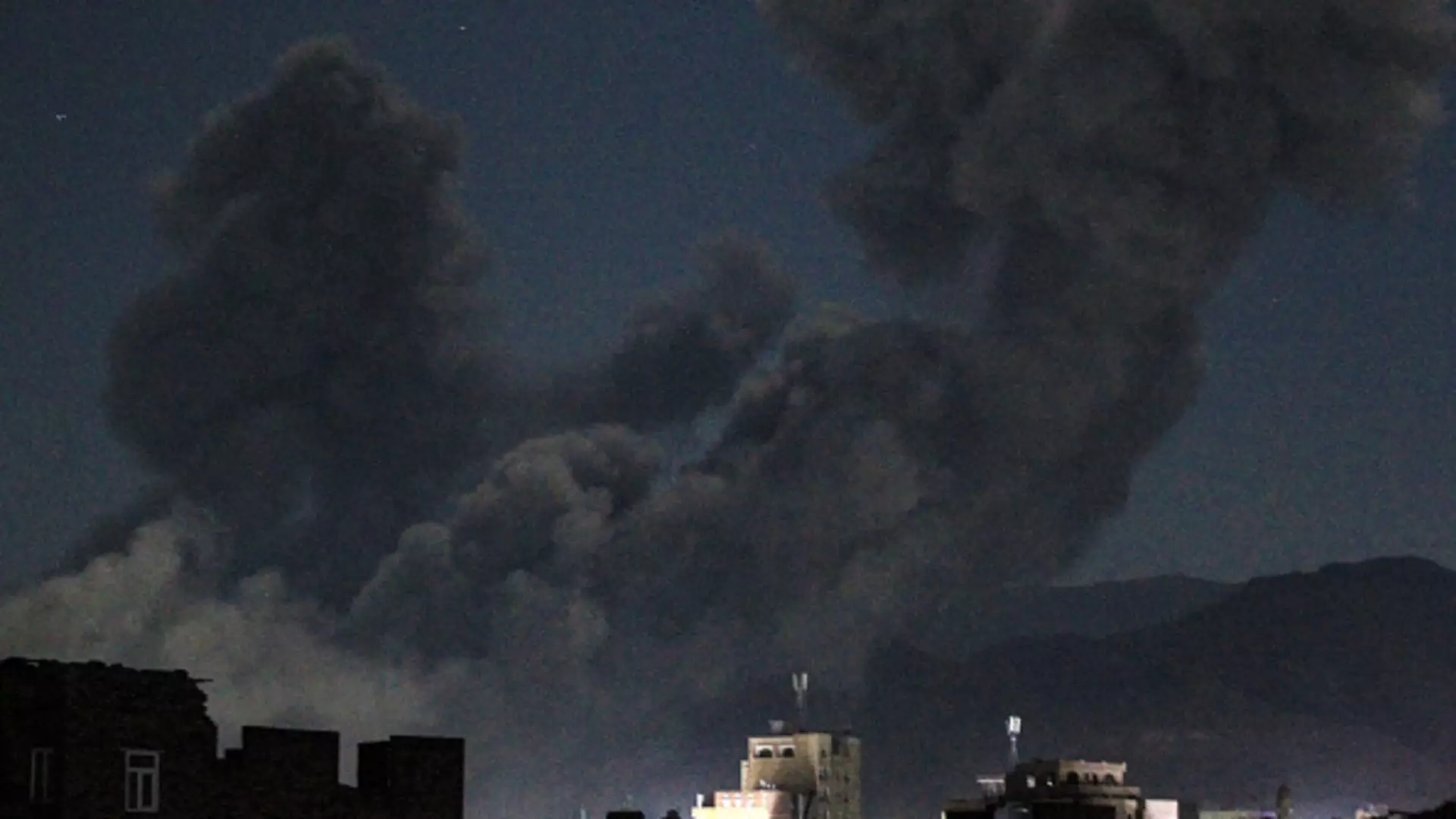The recent military strikes launched by President Donald Trump against Yemen’s Iran-aligned Houthis mark a seismic shift in U.S. foreign policy that deserves serious scrutiny. With 31 civilians dead and many more injured, the implications are grim, raising ethical and moral questions about America’s role as a global military power. This operation is not merely an attack on a militia; it jeopardizes the lives of countless innocents and escalates an already fragile situation into a catastrophic humanitarian crisis.
It is baffling how easily the narrative has shifted towards a simplistic portrayal of good versus evil. America’s portrayal of the Houthis as mere terrorists dangers trivializing a complex geopolitical struggle. While it is undeniable that the Houthis have posed threats to shipping routes in the Red Sea, framing their actions strictly in terms of terrorism ignores the underlying socio-political dynamics at play in Yemen. The Houthis see themselves as fighters in a legitimate struggle, a perspective shaped by a decade of civil war and external intervention that has left the country in ruins.
The Fragile Balance of Power
Trump’s recent military campaign has been characterized as a necessary response to Houthi aggression. However, it’s imperative to recognize that military responses often yield more chaos than resolution. The Trump administration’s decision to escalate military action suggests a deeper issue: a fundamental misunderstanding of the local dynamics at play and a miscalculation regarding Iran’s role in the region.
Tehran’s influence over the Houthis is complicated and layered; the idea that Iran operates in a vacuum where it pulls the strings is simplistic and misleading. The Iranian Revolutionary Guards may assert that the Houthis operate independently, and to some extent, this is true. Coupled with their rhetoric of resistance against perceived imperialist aggression, the Houthis position themselves in a narrative that resonates with many Yemenis. By disregarding this narrative and continuing to escalate military action, the U.S. could further alienate the populace, only serving to strengthen the Houthis’ resolve and deepen the conflict.
A Humanitarian Catastrophe Unfolding
In conversations about military action, very often numbers overshadow humanity, and this is evident in the latest casualty figures: 31 dead, many of whom were women and children. The strikes have not been aimed solely at military targets; they have hit civilians indiscriminately, as noted by witnesses who described airstrikes that “shook the neighborhood like an earthquake.” Such narratives create an emotional chasm that challenges the perception of “acceptable losses” in warfare. It raises the question: when does a tactical gain cross the line into moral failure?
Moreover, the U.S. military action is set against the backdrop of sanctions against Iran, a strategy that has arguably failed to curtail Iranian ambitions but has undoubtedly exacerbated humanitarian conditions in the region. With millions reliant on aid for survival due to the protracted war, any escalation in hostilities only further complicates the situation, digging deeper into the humanitarian abyss. Holding Iran accountable as Trump has suggested is naïve at best, dangerous at worst—especially when it involves the loss of innocent lives.
The Rhetoric of Fear
Trump’s bombastic rhetoric—a promise that “hell will rain down upon you like nothing you have ever seen before”—does not serve the cause of peace or stability. Such statements may play well to a domestic audience eager to support a show of strength, but they do little to advance diplomatic dialogues or foster long-term solutions. Instead, it alienates potential allies and reaffirms adversarial positions.
Moreover, looming threats have proved ineffective in altering the behavior of the very regimes they seek to intimidate. When faced with ultimatums, countries often double down on their positions out of national pride, creating a cycle of escalation rather than de-escalation. Peace is rarely achieved through threats and violence; it requires negotiation and understanding that recognizes the complexities of the geopolitical landscape.
The Consequences of A New Status Quo
The ongoing U.S. military operations in Yemen may represent an increasing pattern of interventionism that channels not so much a desire for peace but rather showcases America’s readiness to exert military force as a primary tool of foreign policy. This positioning as a global cop, particularly without an understanding of the consequences, pushes the world towards instability.
As the Houthis vow to retaliate against not only U.S. forces but also Israeli vessels, the dangerous ripple effects extend beyond Yemen. The escalation of conflicts serves no one except those who profit from instability, whether through military contracts or opportunistic political posturing. What we witness, then, is a series of fateful decisions spiraling the region into further violence and chaos, necessitating a reevaluation of how America perceives its role on the global stage.



Leave a Reply